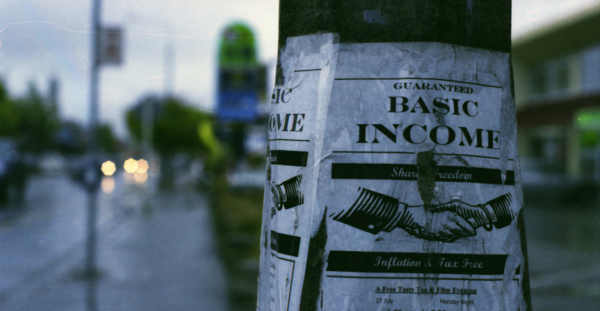In recognition of the International day for the Eradication of Poverty on Oct. 17, Asian Women for Equality hosted a panel discussion on the synergy between a guaranteed livable income and an environmentally-sustainable future.
In the face of the current environmental crisis, there is a need for a massive upheaval of individual and societal behaviours. According to Rob Rainer from the Basic Income Canada Network, the unconditional provision of a regular, reliable basic income could be a crucial component of this larger paradigm shift.
“We need time to reflect on issues broader than our own survival,” Rainer said. “A basic income can provide a foundation and springboard for this reflection [.…] It can provide a sense of calm when you wake up in the morning.”
Canadian policy already includes some programs that act like basic income, such as the Canada Child Tax Benefit, which helps eligible families raise their children, and the Old Age Security program which assists Canadian seniors. However, as Rainer pointed out, there is a ‘missing middle’ in these income assistance programs, and the Canadian working class that is sandwiched between the youth and the elderly does not have access to robust welfare systems. Despite setbacks, such as the recent cancelling of the basic income pilot project in Ontario, Rainer believes in the value of basic income to a sustainable economy.
“[A basic income] could be an expression of our collective willingness to be there for each other,” Rainer said.
The adoption of a Carbon Fee and Dividend Policy, which charges a fee on carbon-based fuels and distributes the gains through dividend cheques, could be the key to financing a proposed basic income transfer. for instance, taxing activities that exacerbate climate change, like burning fossil fuels, can provide the revenue for a basic income.
While obtaining a Canadian basic income might be feasible in the not-too-distant future, there is little, if any, discussion on the position of refugees in the debate. Paul Clarke, executive director of Action Réfugiés Montréal, referenced an increased modern risk of small island populations getting displaced and ending up as ‘climate displaced refugees.’ According to Clarke, policies like a basic income are usually reserved for citizens or permanent residents of a nation, leaving out migrants. Policies that address basic income for refugees could be crucial in helping environmental refugees adjust to life in a new country.
Many believe that achieving a universal basic income is a utopian fantasy. However, success stories from other parts of the world exist. Manitoba implemented MINCOME, a basic income pilot project between 1974 and 1979. More recently, basic income programs have improved social outcomes in regions in Namibia and India.
“[A basic income] is certainly practical, as it has proven to work in many parts of the world,” Toby Davine, communications officer in the McGill Office of Sustainability, said. “It is backed by research and could be feasible in a country as wealthy as Canada. I like the part where a basic income provides the freedom to choose a job that you enjoy. For most of the world, [this] is not the case.”










I am writing an article for the national online newspaper The Narwahl about Basic Income and the environment. Thank you for this piece of research.